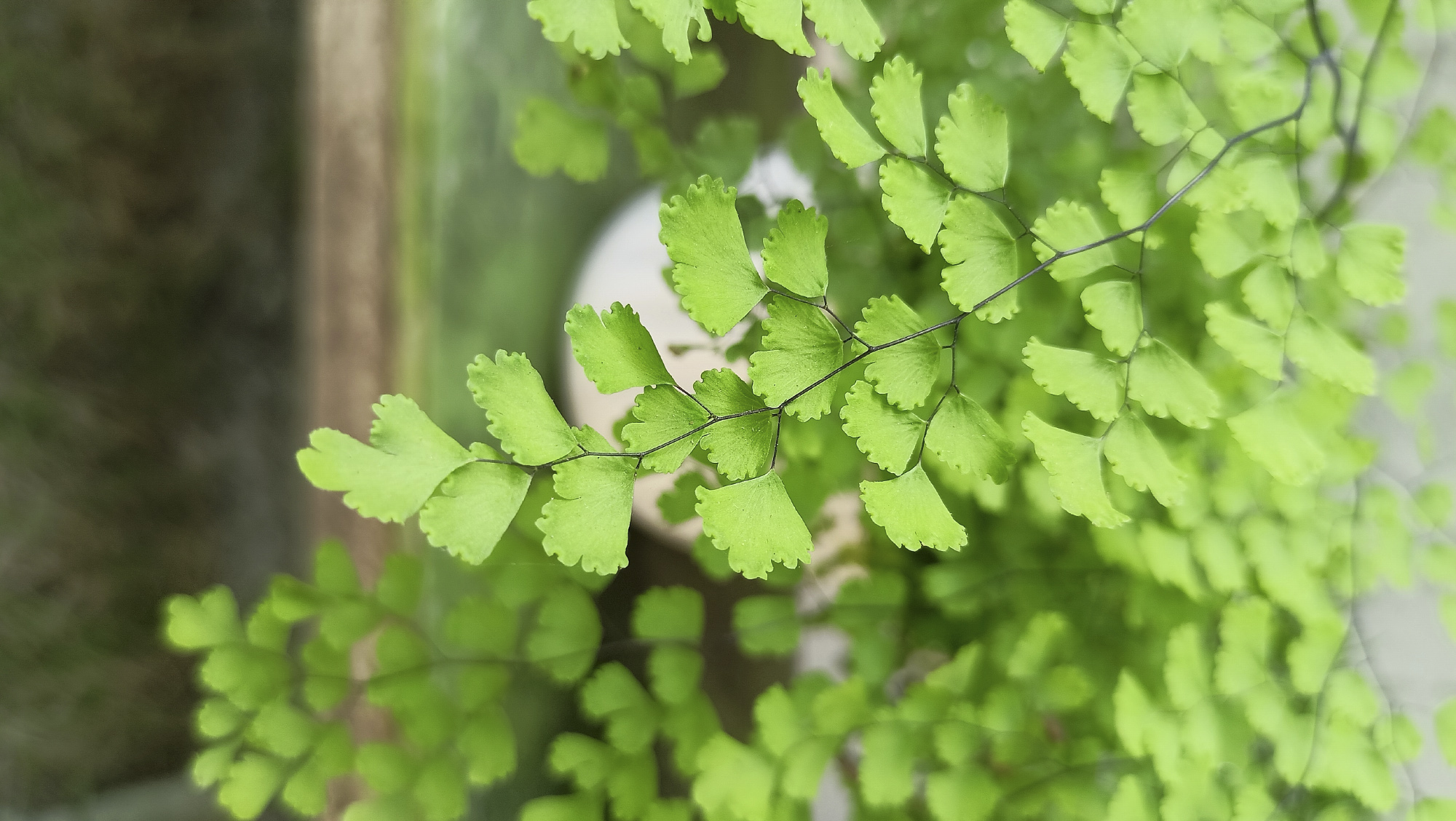Jo Arnell looks into houseplants with benefits
Keeping houseplants will make you more attractive. This is not just a ploy by the houseplant marketing board – according to some research commissioned by The Joy of Plants, all you need to boost your allure is a houseplant or two. It turns out that showing love to your houseplants is also showing the world – and prospective dates – that you are a kind and nurturing person, and most likely to bestow the same sort (well maybe not quite the same – some people aren’t keen on regular watering and dead-heading) of affection on a partner. But before you substitute ‘good sense of humour’ with ‘keeps houseplants alive’ on your profile and rush out to buy some, have a think about which plants to choose, because some are easier to keep alive than others and, judging by some of mine, attraction can be short-lived.
Show you care
It helps to understand how to look after the plants in your care, especially if you want them to thrive and look well tended and loved.
I bought a few houseplants last year. Not to attract anyone you understand (and my husband won’t read this, but just in case), but mainly because I didn’t have any (I’m too busy trying to keep the outdoor plants alive) and I live in a very low-beamed dark house with central heating – conditions that even plants from the floor of a very dense jungle don’t much enjoy. Even in the brightest rooms in houses with much higher ceilings than mine, far less light is available to a plant than we imagine – and so most of our houseplants, certainly the lush and leafy ones, come from warm woodlands and rainforests, where light levels are typically very low. Tropical forests are humid places too, which is why so many of our indoor plants do well in bathrooms and kitchens – and shrivel up when forced to watch Bake Off with us in our centrally heated sitting rooms.
Plants that will manage in warm, dry shade tend to have dark, leathery leaves – dark green because they are packed with chlorophyll to try and absorb as much light as they can, and leathery to prevent water loss. A good example of this is an Aspidistra – a plant associated with gloomy Victorian hallways and darkened living rooms. Parlour palms (the clue is in the name) and some ferns will also cope in this sort of dry shade. Do not subject a delicate Adiantum (Maidenhair) fern to such conditions, though. I love these little plants, but they are tricky and need humidity – sit them on a tray of damp gravel, mist at least twice a day. You probably won’t have time to show love to much else if you have one of these.
If you are lucky enough to have a conservatory, or have south- or west-facing windowsills, then succulents, cacti and other desert-type plants will thrive. A favourite with students, because succulents don’t mind if you forget to water them, not that all students neglect plants (certainly not once they know how attractive plant-keeping might make them). Contrary to popular belief, they do need watering, mostly as they come into active growth in the spring – and they will even enjoy a summer holiday in the garden – just remember to bring them in again in the autumn.
Something to love
You might not be looking for a human companion right now, so the houseplants in your life could be there for your own pleasure. Most of us – even if it is buried deep – are nurturers by nature and watching a plant in your care grow and flourish is rewarding. It’s also much cheaper and less of a commitment than having a pet (I won’t say partner, but…) and, although a plant won’t necessarily show actual love to you in return, it will respond by unfurling a new leaf, bursting into bloom and generally looking healthy and well cared for. If you’re a gardener you’ll know this and most likely will be completely hooked into plant care already.
Romantic houseplant gifts
I know it’s traditional to give red roses at this time of the year, but roses don’t usually bloom in February. They will have been forced in an unromantic polytunnel, or flown in from a far flung field. Also, once cut and plonked in a vase, the only way is down and out onto the compost heap. A houseplant gift, however, chosen carefully to suit the recipient, could last a lifetime, or at least several weeks longer than a bunch of cut flowers.
You don’t want to give something called ‘Mother-in-law’s Tongue’ or a snake plant to someone, despite its indestructibility and ability to purify the air. There are more romantic looking and sounding gifts to try. Anthuriums, with their heart-shaped spathes (a spathe is like a flower, only longer lasting) fittingly available in red, pink or white, look the part and with their elegant waxy leaves, are easy to care for too. Another plant with heart-shaped leaves is Ceropegia linearis subsp woodii, the silvery-leaved ‘String of Hearts’ plant. This is a dainty looking little thing, trailing prettily out of a pot, but like many that appear delicate, it is tough, with wiry stems and a forgiving nature.
Phalaenopsis, or the Moth orchid, is another that looks difficult to keep, but these exotic plants are also easy to look after – just water the container (they are epiphytic, so won’t need repotting into soil) occasionally and place somewhere bright, but out of direct sunlight.
Easiest of all is a heart-leaved Philodendron. It is a trailing plant – occasionally made to climb up a damp mossy pole. As I might have hinted, I am a notorious houseplant murderer, but despite my best efforts to kill it, the Philodendron in my house has remained steadfast, coping with all sorts of extremes and managing to cling on in virtual abandonment for years.
Beauty from houseplants
Just being among plants in your house will make you more beautiful. They will be filtering toxins and reducing the drying effects of the central heating to ensure that your skin is kept moisturised and free from impurities. Peace lilies are especially good at air purifying, absorbing ammonia, benzene, formaldehyde and trichloroethylene and even eating mould spores.
The gel-like sap of Aloe vera can even be directly applied to the skin and is very useful for soothing burns, cuts, and dry skin caused by harsh winter winds. Keep both of these plants in the bathroom and even if you don’t fancy rubbing your skin with Aloe sap, at least the Peace lily can be getting rid of mould in the shower.
Love among the leaves
It has long been known that plants enhance our indoor environments, help us to breathe, purify the air of toxins – and now it appears, they also help improve concentration and boost productivity. Plants in office situations are used to soften and beautify otherwise drab and business-like interiors. They have a multitude of beneficial properties, including improving our mood, so houseplants could definitely be an important part of a romantic setting, helping to relax – and perhaps even inspiring amorous thoughts.
Who knew that owning houseplants could bring so many benefits? They could be all we need to spark joy and love in our homes and work spaces. Now, if you’ll excuse me, I have an ailing Philodendron that needs some love and affection.
Jo’s 2023 garden design courses are now booking. Call 07923 969634 or see hornbrookmanor.co.uk
You may also like
In the Night Garden
Jo Arnell explains how to make the most of your outdoor space once darkness falls Some enchanted evening you may see me outside – mainly searching for slugs in the garden, because the cool hours of night are when they...
Contain your excitement
Jen Stuart-Smith discusses how to get creative with your pots and planters My love affair with plants started with houseplants when I was a child. As my bedroom windowsill overflowed – resulting, occasionally, in waking up with compost under my...
More than just a pretty face
Jen Stuart-Smith explores the multiple uses of some easy-to-grow garden favourites When you grow flowers for their beauty, shape and colour it can be easy to forget all the other qualities they have to offer. Some are edible, others provide...










